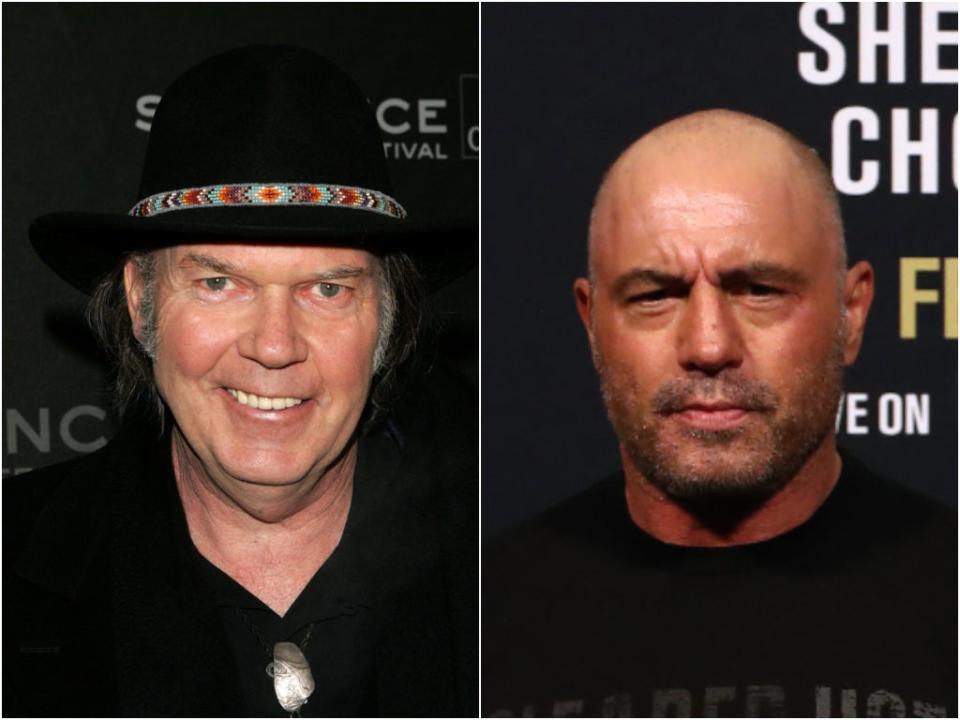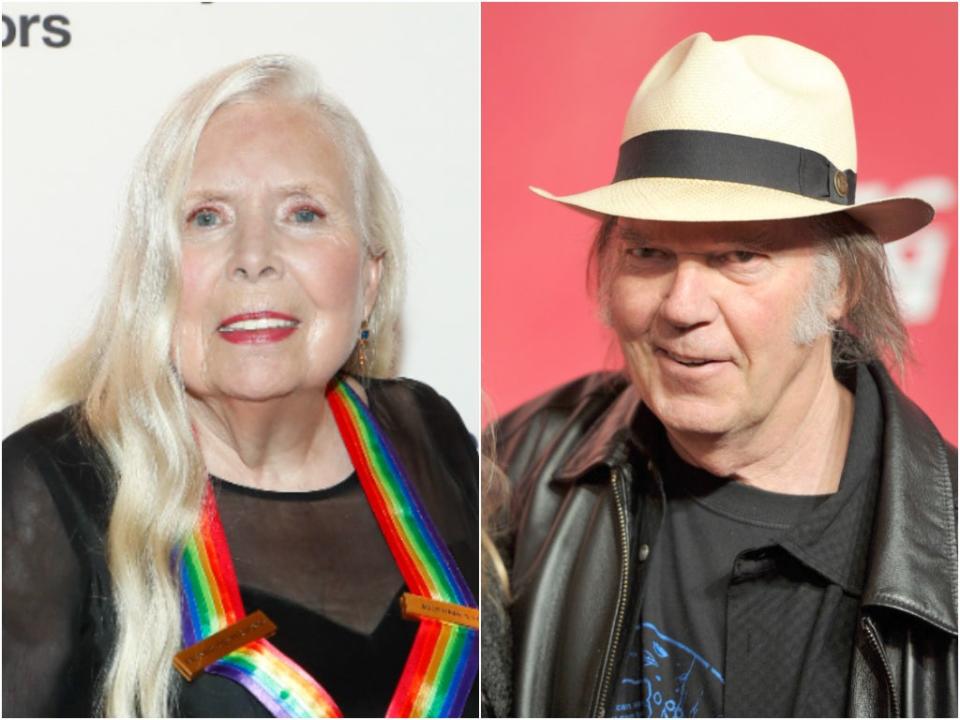Joe Rogan backs Spotify disclaimers and says he will ‘do best to research topics’ in future
Joe Rogan has addressed the controversy surrounding two of his podcasts about Covid-19 vaccines on Spotify.
Last year the 54-year-old podcaster interviewed widely discredited doctor Robert Malone, who claimed on his show The Joe Rogan Experience that Americans were “hypnotised” into wearing masks and getting vaccines.
Soon after that, hundreds of scientists and medical professionals started asking Spotify to address Covid misinformation on Rogan’s controversial episodes about vaccines.
In the past few weeks, musicians and celebrities like Neil Young, Joni Mitchell, Prince Harry, and Meghan Markle joined those protests, with Young and Mitchell asking Spotify to remove their music from the platform as they don’t appreciate the streaming giant’s affiliation with Rogan.
On Monday (31 January), Rogan, who is also a UFC commentator, finally responded to this controversy in an almost 10-minute long video.
The former television presenter started off by saying that he wanted to make this video because he thinks “a lot of people had a distorted perception of what I do.”
“[My] podcast has been accused of spreading dangerous misinformation, specifically about two episodes,” he said. “One with Dr Peter McCullough and one with Dr Malone.”
Rogan defended both doctors by stating their credentials and gave a reason behind why he invited them to his show.
“Dr McCullough is a cardiologist and he is the most published physician in his field in history,” Rogan said. “Dr Malone owns nine patents on the creation of the mRNA vaccine technology and is at least partially responsible for the creation of the technology that led to [creation of] mRNA vaccines.”
“Both these people are very highly credentialed, very intelligent, and very accomplished people, and they have an opinion that’s different from the mainstream narrative. I wanted to hear what their opinion is,” he added.
Rogan continued by highlighting why he has an issue with his episodes being labelled as “dangerous” and that they spread “misinformation”.
“Especially today, many of the things we thought of misinformation just a short while ago are now accepted as fact,” he said, before giving examples of how people used to be blocked from certain social media platforms for claiming things like “Covid-19 came from a lab” - which is now on the headlines of Newsweek.

“All those theories that at one point of time were banned were openly discussed by those two men that I had on my podcast, that have been accused of ‘dangerous misinformation,’” Rogan claimed.
He continued by saying that he “doesn’t” know if [the doctors are] right, and claims that he’s just a “person who sits down and talks to people and have conversations with them”.
On the topic of whether Rogan tries to get things wrong? He said: “Absolutely! But then I try to correct them.”
During his video, the commentator also said that he agrees with Spotify’s decision to add “disclaimers” at the beginning of controversial podcasts, especially the ones related to Covid.
Rogan also highlighted that he has “no hard feelings” towards Neil Young and Joni Mitchell, and admitted that he in fact loves both their music.
“I don’t know what else I can do differently other than maybe try harder to get people with different opinions on right afterward,” he said.

Rogan also admitted that he will do his best to make sure to “research these topics” thoroughly and have “all the pertinent facts at hand before I discuss them.”
“I’m not trying to promote misinformation, I’m not trying to be controversial. I’ve never tried to do anything with this podcast other than just talk to people, and have interesting conversations.”
The podcaster ended his statement by pledging that he will “try to balance out these controversial viewpoints” from now on.
Yesterday, Spotify’s CEO Daniel Ek announced that the platform will put in “new effort[s] to combat misinformation, [and] roll out to countries around the world in the coming days.”
Spotify’s full statement can be read here.
